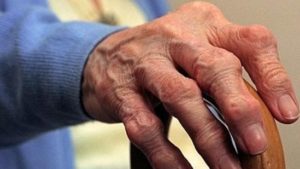
A new study conducted by a team of researchers from the Oregon Health and Science University (OHSU) has stated that older people, including those vaccinated against the coronavirus disease (Covid-19), appear to have fewer antibodies against SARS-CoV-2, thus making them potentially more susceptible to various variants of the virus.
“The older population is more susceptible to the variants even if vaccinated,” senior author Fikadu Tafesse, an assistant professor at OHSU’s School Of Medicine, said of the study, which was published in the Journal of the American Medical Association.
For their study, the researchers measured the immune response in the blood of 50 people two weeks after they received their second and final dose of Pfizer’s Covid-19 vaccine. The participants were grouped on the basis of age groups and their blood serum, contained in test tubes, was exposed to the original SARS-CoV-2 virus, as well as to the P.1 variant, which is also called gamma, and was first found in Brazil.
The study found that the youngest group (all participants in their 20s) had a nearly seven-fold in antibody response as compared to that in the oldest group (participants between 70 and 82 years of age), prompting the team to conclude that “the younger a participant, the more robust the antibody response.”
However, Tafesse and the team also stressed that despite the study, Covid-19 vaccines still appear effective enough to prevent infection and severe illnes among people across almost all age groups. “The good news is that our vaccines are really strong,” he said.
Tafesse further remarked that the research, in fact, highlights the need for everyone to get vaccinated against Covid-19. “Older people aren’t entirely safe just because they are vaccinated. The people around them really need to be vaccinated as well,” he concluded.
(with ANI inputs)




 Driving Naari Programme launched in Chandigarh
Driving Naari Programme launched in Chandigarh






























